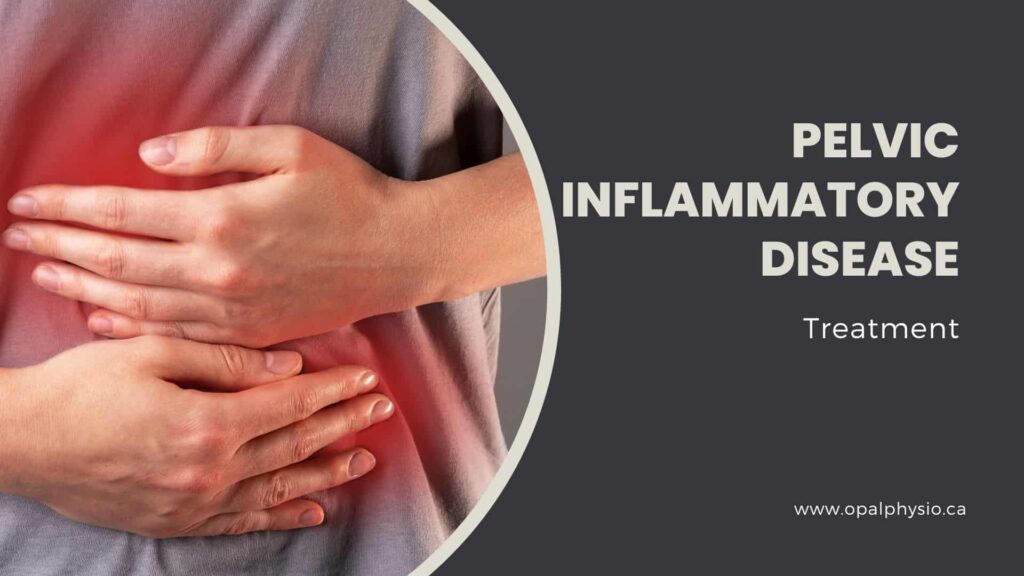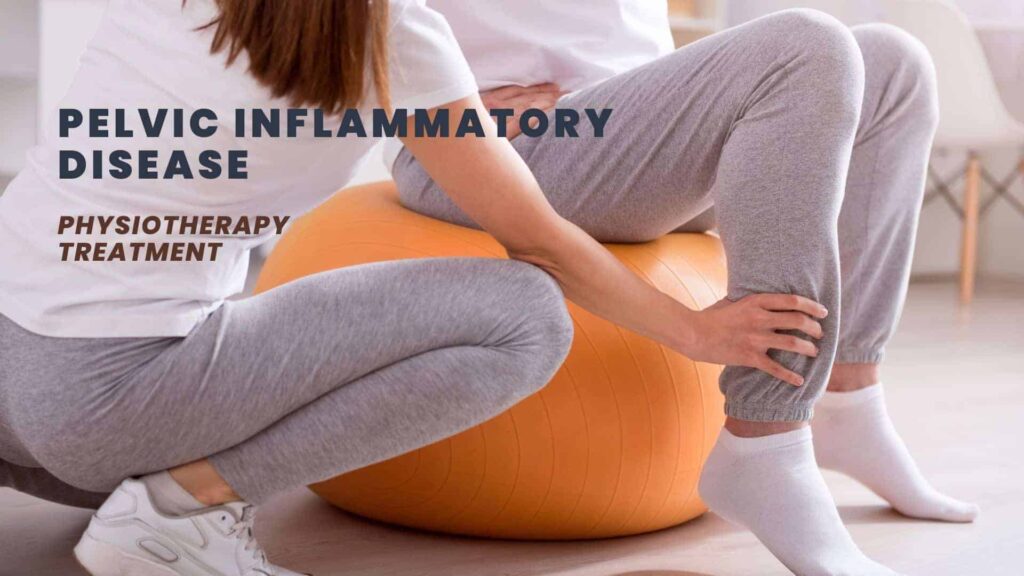Pelvic Inflammatory Disease
Pelvic Inflammatory Disease Physiotherapy Services
Pelvic inflammatory disease (PID) is an infection of one or more female reproductive organs, including the uterus, fallopian tubes, and ovaries. It’s usually caused by a sexually transmitted infection (STI), most commonly chlamydia or gonorrhea, but it can also occur due to other infections.
If left untreated, PID can lead to serious complications, including infertility, ectopic pregnancy (a pregnancy outside the uterus), scar tissues, abscess formation, and chronic pelvic pain.
Pelvic inflammatory disease is primarily infectious and is first treated with antibiotics. However, physiotherapy can support some symptoms and complications of PID, particularly chronic pelvic pain, which can persist even after the infection is cleared.
At Opal Physio, we offer treatment for pelvic pain after pelvic inflammatory disease. The main goal of physiotherapy in PID treatment is to alleviate pain and inflammation.

Symptoms of pelvic inflammatory disease
The symptoms of PID can be subtle or mild, and some women may not experience any signs or symptoms at all. When symptoms are present, they most commonly include:
- Pain or tenderness in the lower abdomen or pelvis
- Abnormal vaginal discharge, usually yellow or green, with an unusual odour
- Chills or fever
- Nausea and vomiting
- Pain during sex
- Burning sensation when urinating
- Irregular periods or spotting and cramping throughout the month
- Heavy periods
- Painful periods
Women with PID may sometimes experience severe abdominal pain, high fever, and vomiting. If you suspect you have PID or are experiencing pelvic pain, it is crucial to consult a healthcare professional for proper diagnosis and treatment, as early treatment is crucial to avoid complications associated with PID.
To prevent PID, it is crucial to practice safe sex and maintain good sexual health and have regular check-ups with your physician to detect and treat any sexually transmitted infections early.

Physiotherapy treatment for pelvic inflammatory disease
Physiotherapy can be an effective adjunct treatment for managing pain and inflammation associated with PID. In mild and moderate cases of PID, physiotherapy can help relieve pain and inflammation alongside pharmacological therapy (antibiotics).
Why choose our clinic?
At Opal Physiotherapy Clinic, we are dedicated to providing compassionate care to women. Our team of experienced physiotherapists has the expertise to provide a range of treatments to help manage the symptoms of PID and prevent chronic pain issues.
Our approach
Our proficient physiotherapists are trained to provide personalized treatment plans for individuals with PID. Our approach focuses on relieving pain, reducing inflammation, and improving pelvic health. We utilize a combination of techniques, including:
Pelvic exercises: This specialized therapy focuses on the muscles, ligaments, and tissues that make up the pelvic floor. Therapists can teach patients exercises to help strengthen and relax these muscles. It also helps increase blood flow, decrease pain sensitivity, and relax, stretch, and tone the pelvic muscles to relieve symptoms such as lumbosacral pain and lower abdominal distension.
Manual therapy and biofeedback: These techniques can be used to address musculoskeletal issues related to PID and help patients gain better control over their pelvic floor muscles: Manual therapy techniques, like soft tissue mobilization and trigger point release, can help reduce muscle tension and improve circulation and alleviate pain in the pelvic region.
Pain management techniques: Physical therapists can teach patients various pain management techniques, including applying heat or cold, relaxation techniques, and exercises to help manage and reduce chronic pain.
Patient education and support: Physical therapists can educate patients about their condition and how to manage it, including providing advice on lifestyle modifications that might help alleviate symptoms (like changes in diet or exercise habits).
Exercise prescription: Physiotherapists can prescribe specific exercises that can help improve general health and well-being, boost mood, and help manage chronic pain. These can include low-impact exercises like yoga or stretches and muscle strength training, which can benefit pelvic health.
Benefits of our services
By choosing our physiotherapy services for Pelvic Inflammatory Disease, you can expect:
- Personalized treatment plans tailored to your specific needs
- Reduced pain and inflammation in the pelvic region
- Improved pelvic floor muscle function and coordination
- Enhanced overall muscle function, pelvic health and well-being
Book your appointment today
Don’t let pelvic pain after a pelvic inflammatory disease holds you back from living a healthy, pain-free life. Contact us today to schedule an appointment with one of our professional pelvic floor physiotherapists and start your journey toward improved pelvic health.
